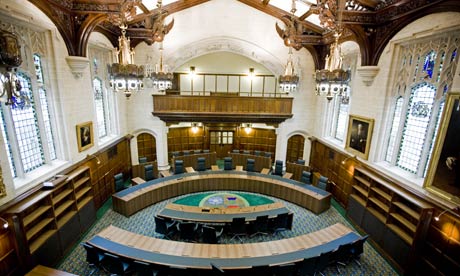By James Simons-
According to the Supreme Court,The UK is discriminating against heterosexual couples who seek to formalise their relationships as civil partnerships instead of a marriages. The Supreme Court also ruled that it was against their human rights.
Academics Rebecca Steinfield and Charles Keidan have won an appeal in the Supreme Court, after five justices unanimously agreed that current legislation allowing only same-sex couples to enter civil partnerships as a legal union is unfair.
The judgement will open the door to more couples seeking civil partnerships instead of marriage, and could potentially undermine the traditional values of marriage. Civil partnerships were introduced in 2004 to give same-sex couples equal rights to form a legal union similar to marriage.
Ms Steinfeld and Mr Keidan launched the legal case because of ideological objections they have to marriage, which they deem as patriarchal. The ruling suggested that unless same sex civil partnerships were stopped, it w
Civil partnerships entitle couples to the same legal treatment in terms of inheritance, tax, pensions and next-of-kin arrangements as marriage. The couple, who met in 2010 and have two children, said the “legacy of marriage” which “treated women as property for centuries” was not an option for them.
“We want to raise our children as equal partners and feel that a civil partnership – a modern, symmetrical institution – sets the best example for them,” they explained.“The interests of the community in denying those different-sex couples who have a genuine objection to being married the opportunity to enter into a civil partnership are unspecified and not easy to envisage,” their ruling said.“In contrast, the denial of those rights for an indefinite period may have far-reaching consequences for those who wish to avail of them.”“If the UK is to abide by this ruling, the law will have to be amended,” Hazel Wright of Hunters Solicitors said.
“We must remember,” she cautioned, that the government can be “slow to act” on legislative changes “where there is political or other meaningful opposition”.The law may not be changed to allow heterosexual civil partnerships, she added, but “arguably could be changed to stop same-sex civil partnerships.”
The academics, who live in Hammersmith, west London, suffered defeat at the Court of Appeal in February last year, but were given the go-ahead in August for a Supreme Court hearing.
The panel of Supreme Court justices, including the court’s president, Lady Hale, originally heard the couple’s case in May , but held off their final decision until Wednesday morning. The couple had argued mainly on Human Rights grounds, stating that the law was an intrusion on their right to private family life and was also discriminatory.
The judges granted a declaration that the 2004 Act was “incompatible” with human rights laws on discrimination and right to a private and family life.
Lord Kerr, announcing the court’s decision, said the Government “does not seek to justify the difference in treatment between same-sex and different sex couples”.
He added: “To the contrary, it accepts that the difference cannot be justified.”
What the Government sought was “tolerance of the discrimination while it sorts out how to deal with it”.He concluded: “That cannot be characterised as a legitimate aim.” The ruling confirms the need for the government to carefully consider their position on various legal areas before passing them as law. It also questions the legal expertise of the Court of Appeal when they make serious errors in cases like these.




